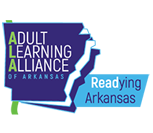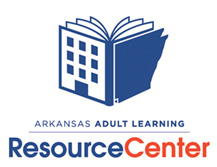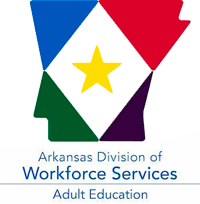Part 1: The Hidden Power of Soft Skills
As an adult tutor, you understand the importance of academic knowledge and technical skills in helping your learners succeed. However, there’s another critical aspect that often goes overlooked: soft skills. Soft skills encompass a range of interpersonal and personal attributes that are invaluable for personal and professional growth. In this blog post, we’ll explore why soft skills matter for adult learners and how they can significantly impact their educational journey.
1. Employability: Soft skills are essential in the workforce. Employers increasingly value qualities like communication, teamwork, and adaptability. By teaching these skills, you help your learners become more attractive candidates in the job market.
2. Effective Communication: Soft skills, such as active listening and effective communication, enhance learners’ ability to express themselves clearly and understand others. These skills are crucial for success in both academic and professional settings.
3. Confidence Building: Soft skills contribute to learners’ self-confidence. As they develop skills like public speaking and problem-solving, they become more self-assured and willing to take on challenges.
4. Collaboration: Collaboration is a cornerstone of modern work environments. Teaching learners to work effectively in teams and resolve conflicts can prepare them for real-world collaboration.
5. Adaptability: In a rapidly changing world, adaptability is vital. Soft skills like flexibility and resilience help learners navigate unexpected challenges and changes in their lives and careers.
6. Emotional Intelligence: Soft skills include emotional intelligence, which enables learners to understand and manage their emotions and those of others. This skill fosters empathy, better relationships, and conflict resolution.
7. Leadership Potential: Soft skills can nurture leadership qualities in learners. Skills like decision-making, problem-solving, and motivating others are essential for leadership roles.
8. Effective Time Management: Time management, a crucial soft skill, helps learners balance their study, work, and personal life effectively. It leads to improved productivity and less stress.
9. Networking: Soft skills like networking and relationship-building can open doors to opportunities and resources that benefit learners’ educational and career paths.
10. Lifelong Learning: Soft skills encourage a mindset of continuous learning. When learners are open to acquiring new skills and knowledge, they become more adaptable and resilient in the face of change.
11. Better Learning Experience: Soft skills can improve the overall learning experience. A positive classroom atmosphere, fostered by good communication and mutual respect, enhances learners’ engagement and retention of knowledge.

Part 2: Resource List For Teaching Soft Skills
Coursera: While some courses on Coursera are paid, many institutions offer free courses on soft skills topics. Look for courses on communication, leadership, and teamwork.
edX: Similar to Coursera, edX offers free courses on a wide range of soft skills, such as emotional intelligence, time management, and problem-solving.
MIT OpenCourseWare: MIT offers free access to their course materials, including lectures, assignments, and reading lists. This can be a valuable resource for subjects like negotiation and conflict resolution.
LinkedIn Learning (formerly Lynda.com): Some public libraries offer free access to LinkedIn Learning, which has numerous courses on soft skills.
YouTube: There are countless YouTube channels dedicated to soft skills training. Channels like TED Talks, MindTools, and Charisma on Command provide valuable insights and tips.
Toastmasters International: Toastmasters is an organization focused on improving public speaking and leadership skills. Many local chapters offer free or low-cost meetings and resources.
MindTools: MindTools offers a variety of free articles, quizzes, and worksheets on topics like communication, time management, and decision-making.
Courageous Conversations Toolkit: This resource, provided by the University of Arkansas, offers tools and guides for improving communication and having difficult conversations.
Soft Skills Assessment Tools: Websites like SkillsYouNeed and MindTools offer free self-assessment tools that can help individuals identify their strengths and areas for improvement in soft skills.
Community College Websites: Many community colleges provide free resources and materials related to soft skills development. Check out the websites of local colleges in Arkansas for potential resources.
Nonprofit Organizations: Organizations like Goodwill and Workforce Development Centers often offer free soft skills workshops and training programs.
Local Libraries: Public libraries often host workshops and have books on soft skills development that can be borrowed for free.
Government Websites: State and federal government websites sometimes offer free resources and toolkits related to soft skills and workforce development.
While academic and technical skills are undoubtedly crucial, soft skills are equally significant for adult learners. As an adult tutor, your role extends beyond teaching subject matter; you have the power to help learners develop essential life skills. By emphasizing the importance of soft skills, you prepare your learners not only for academic success but also for a fulfilling and successful future in the ever-evolving world. Soft skills are the hidden key to unlocking their full potential. So, as you continue your educational journey with your adult learners, remember the profound impact that soft skills can have, both inside and outside the classroom.







